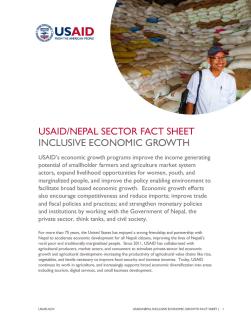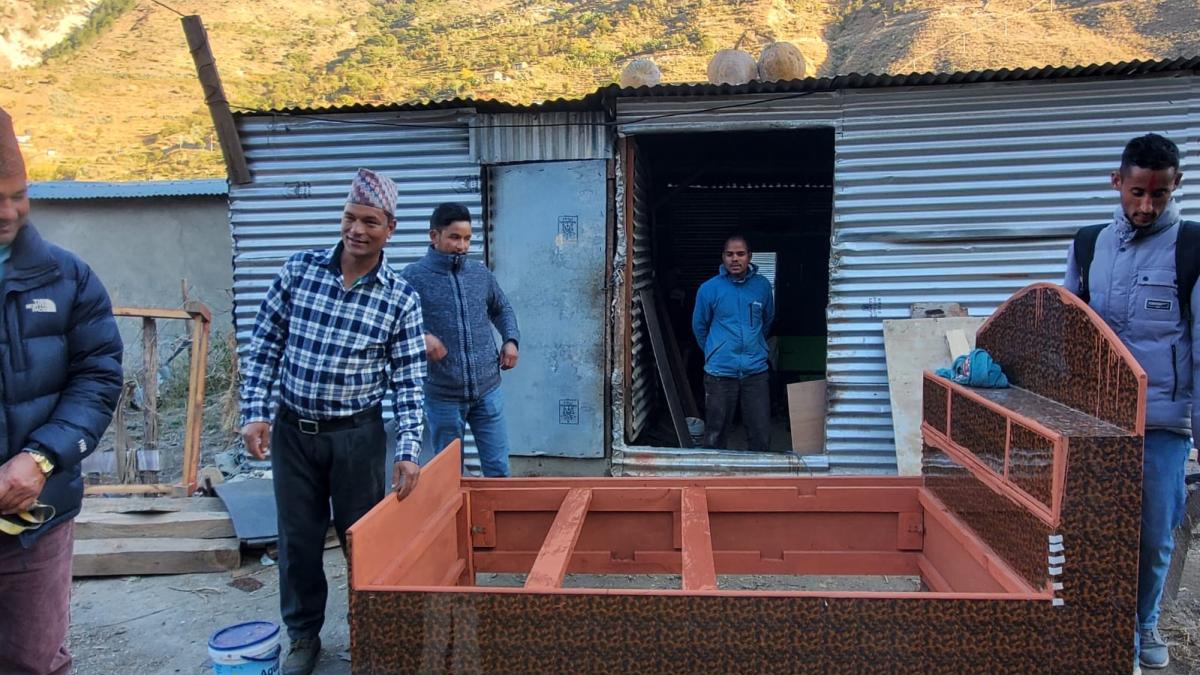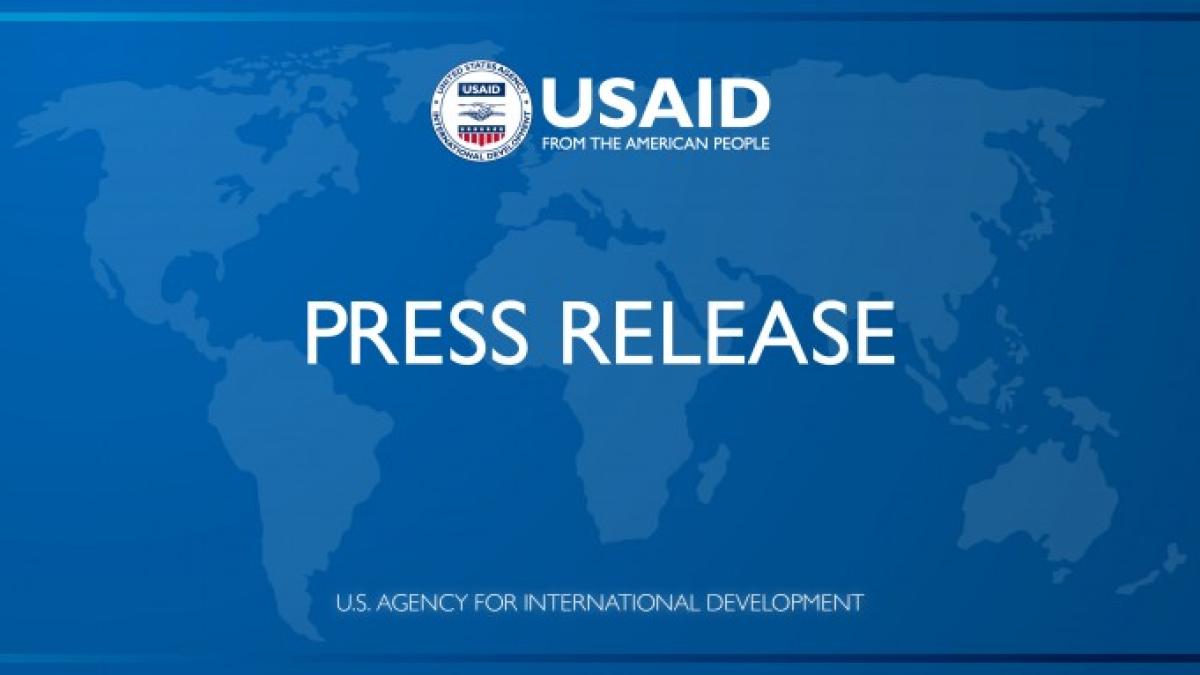Economic Growth Office Sector Fact Sheet
$94 Million in Current Activity Funding
USAID’s economic growth programs improve the income generating potential of smallholder farmers and agriculture market system actors, expand livelihood opportunities for women, youth, and marginalized people, and improve the policy enabling environment to facilitate broad based economic growth. Economic growth efforts also encourage competitiveness and reduce imports; improve trade and fiscal policies and practices; and strengthen monetary policies and institutions by working with the Government of Nepal, the private sector, think tanks, and civil society.
For more than 75 years, the United States has enjoyed a strong friendship and partnership with Nepal to accelerate economic development for all Nepali citizens, improving the lives of Nepali’s rural poor and traditionally marginalized people. Since 2011, USAID has worked with agricultural producers, market actors, and consumers to stimulate private-sector led economic growth and agricultural development–increasing the productivity of agricultural value chains like rice, vegetables, and lentils necessary to improve food security and increase incomes. Today, USAID continues its work in agriculture, and increasingly supports broad economic diversification into areas including tourism, digital services, and small business development.
Improve Overall Agriculture Productivity and Establish New Trade Opportunities
USAID works with the Government of Nepal and local partners to increase agricultural productivity, facilitate access to markets, and improve nutrition by enhancing the production and consumption of nutritious food. USAID enhances agricultural productivity and profitability by investing in the private sector to deliver innovation and business development services to farmers. As a result, farmers, agribusinesses, and food industries can allocate additional human and financial resources to market systems that diversify and strengthen Nepal’s economic growth. USAID’s agricultural programming also addresses the effects of climate change on agricultural productivity and builds climate resilience throughout the food system.
Develop Private Sector Partnerships and Unlock Investment Potential
USAID is increasing the competitiveness of Nepal’s high-growth agriculture, tourism, and digital service sectors through the improvement of the country’s economic governance and business environment and by partnering with enterprises to strengthen their international capacity and attract new sources of investment.
Integrate Marginalized and Vulnerable Groups Into Markets
USAID implements inclusive approaches to better link women, youth, and marginalized groups to markets, ensuring that these groups have opportunities for advancement and participation throughout agricultural value chains.
Adopt Transparent, Evidence-Based Policies for a More Conducive Private Sector Enabling Environment
USAID has been an influential partner in Nepal’s agriculture sector since 2010, successfully advocating for market-led reforms that lay the foundation for broader economic growth in the near term. USAID will continue to support a market-centric approach to agriculture and influence policy reforms.
Impact/Results:
USAID activities unlocked $60.4 million in new agricultural financing in 2021.
Technical support, quality inputs, and improved market linkages to farmers and micro, small and medium (MSME) enterprises led to more than $256,000,000 in agricultural produce sales in 2021, a 5% increase from 2020 despite COVID-related lockdowns.
USAID created partnerships with 153 private sector firms to deliver innovative, market-based solutions, reaching over 200,000 rural households with improved agricultural inputs, market linkages, technical assistance, and other critical services.
USAID activities mobilized private sector partnerships and innovative digital technologies, connecting them to branchless banking services through a partnership with Laxmi Bank.
USAID supported five agrovets, who initiated branchless banking service, opened 862 accounts, collected nearly $16,000 in deposits, and disbursed around $100,000 in loans.
USAID continued to support GON policies to strengthen the enabling environment for agribusinesses and agricultural livelihoods on key issues, such as private sector engagement, goat development, licensing and registration of food businesses, and import-export inspection and certification of food products.
USAID’s agricultural capacity building efforts improved management and production technologies across 133,533 hectares
Contributing to Nepal’s continuing federalism movement, USAID supported the Government of Nepal to develop their Provincial Agriculture Development Strategies for both Lumbini and Sudurpaschim Provinces.
*Data from FY2021
Share This Page




